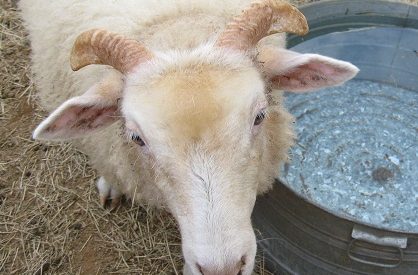Psalm 23
23:1 The LORD is my shepherd, I shall not want.
23:2 He makes me lie down in green pastures; he leads me beside still waters;
23:3 he restores my soul. He leads me in right paths for his name’s sake.
Christ compares his followers to sheep, animals who need to be in groups to survive. Sheep are not known for independent thinking, but rather for complacency. Indeed, we are a forgetful people, often preferring nettles over sweet grass, and we frequently forget who is our shepherd, and must be gathered back in.
Psalm 23 is usually seen as a psalm of comfort, as assurance that we are cared for. And it is. But it is also a reminder of whose we are: we belong to the shepherd, who will not allow us to stray too far. And the shepherd does not merely care for sheep because he loves them; they are his wealth and his glory. They are what he has to give, to use, and to keep. He chooses to shear them for their wool or to slaughter them for their meat, and he chooses the hour in which these things happen, in accordance with his wisdom and experience. He cares for them and sees that they are well fed and protected so that they might be of greater use to him when he chooses. But he does not choose these things for the sheep arbitrarily; a good shepherd will not shear his sheep too soon, lest they are cold, nor too late, lest they overheat. A good shepherd will see that the sheep are a good age, and well fattened, before slaughtering them for food, and will not slaughter so many as to destroy his herd, nor treat them cruelly even in the slaughter.
We must recall always that we are God’s flock, and Jesus is our good shepherd. We need fear nothing, yes, but we also must remember whose we are: that we work and labor for the glory of the shepherd, not the sheep. That our wool, our very flesh, belongs to God, and all things we produce are rightly His—and that his care for us is not only unconditional love, but working to the greater glory of God. What gift, then, can we give our shepherd save our labor, our lives, and our all, since we are His?
Angela Cox


